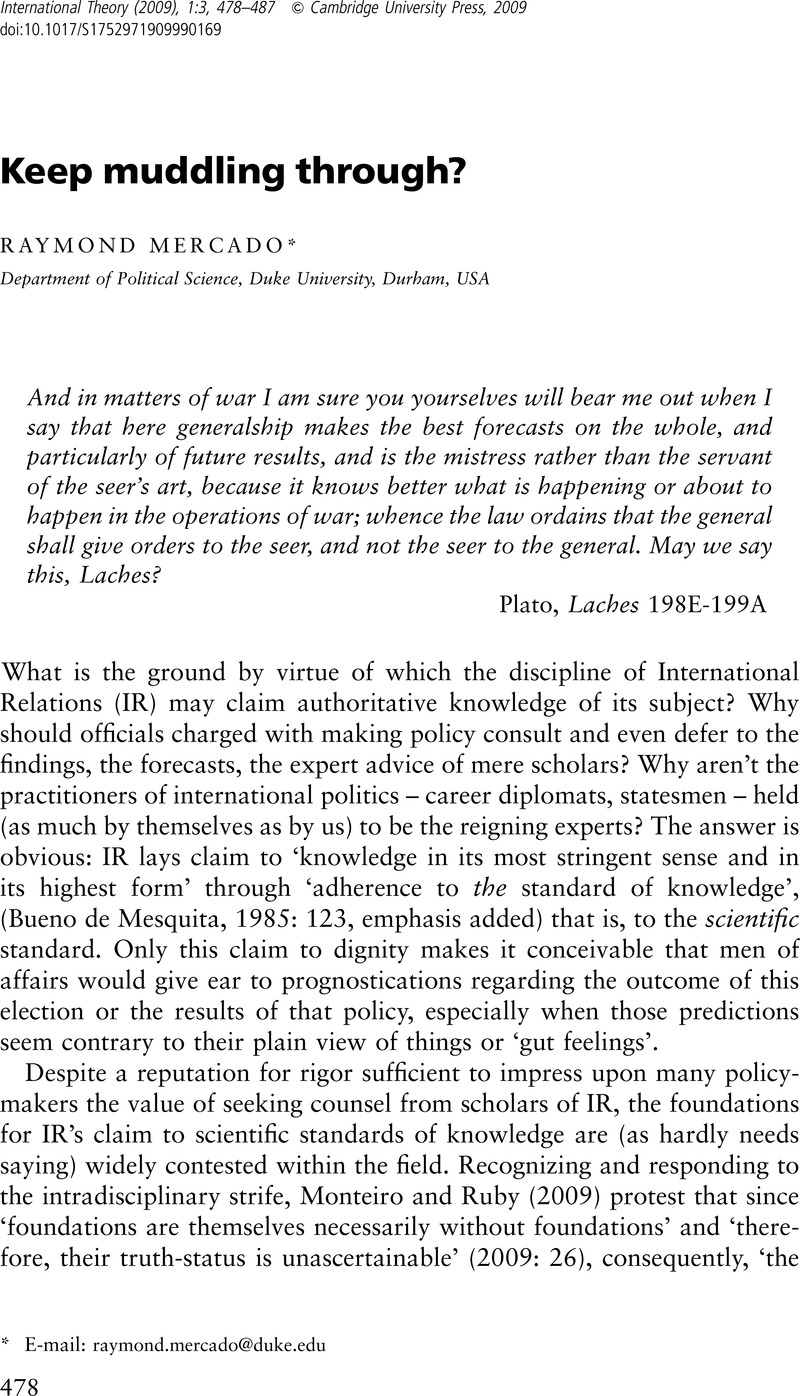Crossref Citations
This article has been cited by the following publications. This list is generated based on data provided by Crossref.
Monteiro, Nuno P.
and
Ruby, Keven G.
2009.
The promise of foundational prudence: a response to our critics.
International Theory,
Vol. 1,
Issue. 3,
p.
499.
Blagden, David
2016.
Induction and Deduction in International Relations: Squaring the Circle Between Theory and Evidence.
International Studies Review,
Vol. 18,
Issue. 2,
p.
195.


